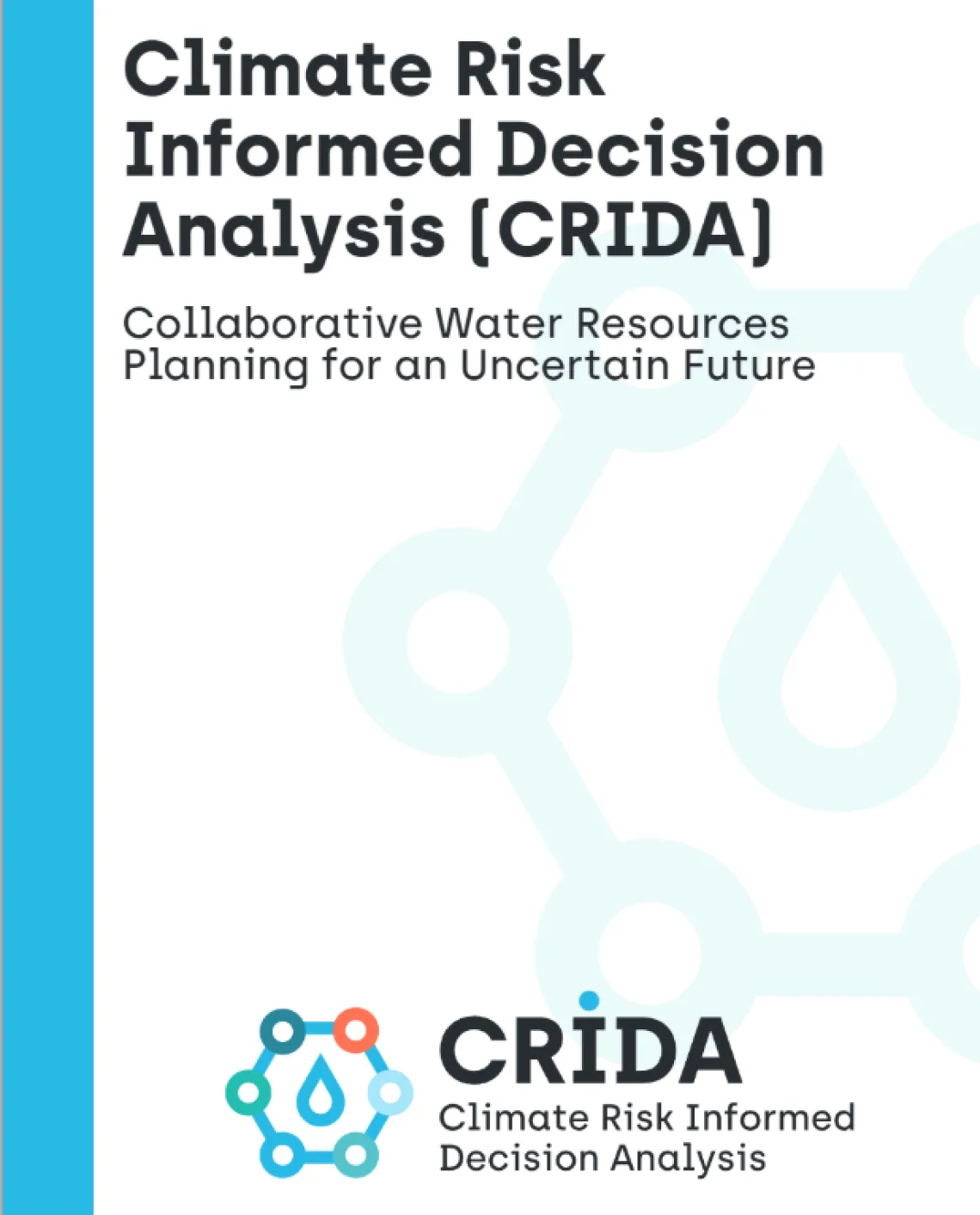New UNESCO Summary Pamphlet on Climate Adaptation for Bottom-Up Water Resources
Sixteen Page Publication Summarizes Key Elements of UNESCO G-WADI's Climate Risk-Informed Decision Analysis (CRIDA)

Cover page of CRIDA brochure (UNESCO)
UNESCO
The importance of integrating climate change considerations into water resources planning is recognized on a global scale. Various frameworks, such as the Sendai Framework for Disaster Risk Reduction, the United Nations Sustainable Development Goals, and the Paris Agreement, emphasize the need for proper planning, policy-making, and adaptation strategies. The Climate Risk Informed Decision Analysis (CRIDA) methodology was launched in 2018 as a response to these international agendas, bridging the gap between climate change uncertainty and water resource planning.
Climate Risk-Informed Decision Analysis, or CRIDA, provides a framework to identify potential water security risks in a region or watershed, caused by climate change and other drivers, by providing a step-wise planning process to identify and address the challenges for sustainable water resources management.
A new, 16-page publication is now available for non-experts who are interested in exploring how CRIDA can assist them in their own water resources planning and management issues.
In addition to UNESCO, CRIDA was developed by the International Center for Integrated Water Resources Management (ICIWaRM), the Alliance for Global Water Adaptation (AGWA), Deltares, the University of Massachusetts and the University of Cincinnati.
